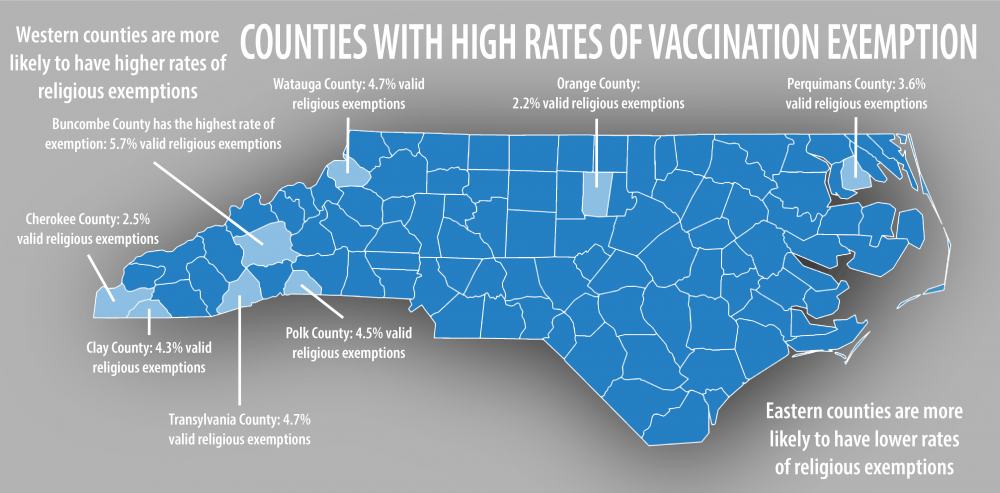Centers for Disease Control and Prevention released a report last month confirming over 1,200 individual cases of measles in 31 different states since the beginning of the year, the highest number of cases reported in the U.S. since 1992.
Although North Carolina is not currently among the long list of states affected by the measles outbreaks, a growing amount of unvaccinated children may increase the threat of contraction in schools across the country. The CDC reported that the majority of cases were found in communities that had lower vaccination rates.
Tracy Sanders, nurse coordinator for Chapel Hill-Carrboro City Schools, said despite the district’s history of high vaccination rates, health officials are monitoring measles closely to prevent outbreaks and potential quarantines of affected students.
“If measles were to come through, measles is much more contagious than pertussis (whooping cough) and is much more easily spread,” Sanders said.
Last spring, Sanders said, school nurses were required to contact all students who had not received two doses of the measles, mumps and rubella vaccine, the state-mandated vaccine requirement to prevent measles, to inform their parents of the possible threat. The DTH reported earlier this year that in 2017, 92.2 percent of children aged 19-25 months had received their first MMR vaccine, down one percent from 2016.
Mike DeFranco of the Orange County Health Department said the department also hosted a “measles symposium” to raise awareness of the required measles vaccine and how to address the disease, should it spread to North Carolina. The OCHD is responsible for administering guidelines to both Orange County Schools and Chapel Hill-Carrboro City Schools concerning outbreaks and preventative care on a case-by-case basis.
“We reached out to a lot of community partners, some schools, just to say, ‘Hey, let’s have this conversation.’ We haven’t had a case in North Carolina or South Carolina, but in adjacent states, we have,” DeFranco said.
Vaccination requirements and exemptions
According to North Carolina General Statute 130A-152, every child in the state is required to be immunized against several different illnesses and diseases, including measles and whooping cough, upon entering kindergarten and the seventh grade. Students are given a 30-day grace period from their first day of enrollment to provide documentation proving they have been vaccinated or are exempt. Should the documentation not be provided, they are not permitted to go to school.




